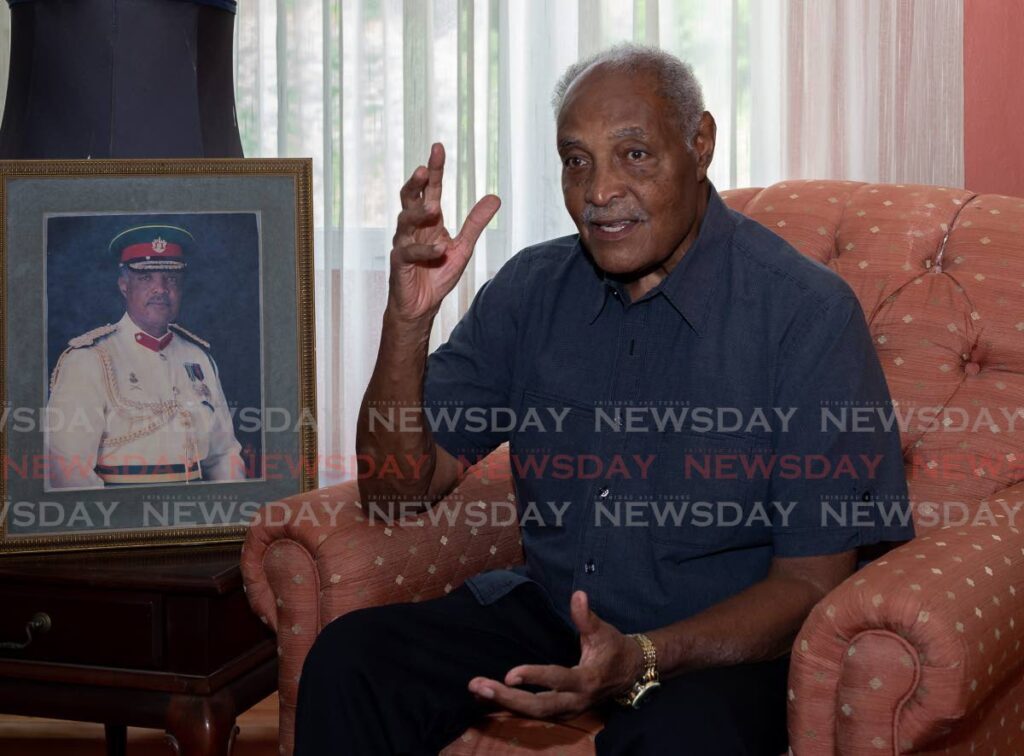A commanding patriot

THE COUNTRY owes a debt of gratitude to Ralph Brown.
The retired major general and former chief of defence staff died at 84 and was sent to his rest on April 8 at All Saints’ Anglican Church, Port of Spain, at a funeral attended by current and former presidents, ministers and military top brass.
He was instrumental in preserving this country’s democracy at its most grievous moment: the catastrophic days beginning with July 27, 1990.
Col Brown was the commanding officer of the regiment when Jamaat al Muslimeen insurgents stormed Parliament, took Prime Minister ANR Robinson and MPs hostage, and firebombed police headquarters, while TTT, Radio Trinidad and 610 Radio were attacked and media workers held captive.
“The quality and quantity of violence and vicious conduct were of a quite unprecedented scale,” remarked Sir David Simmons, chairman of the commission of enquiry appointed to examine those events two decades later.
At least 24 people died, including one MP, but hundreds more, including looters and ordinary people caught up in the chaos, were injured.
All of it could have been worse. According to evidence at the enquiry, insurgents planned to murder hostages.
Col Brown had an overriding faith in the power of negotiation, a matter he was versed in, having studied under Harvey Schlossberg, the famed Freudian psychoanalyst from the US who is credited as the founder of modern crisis negotiation. It was that faith that allowed efforts to bring about a peaceful and bloodless resolution to flower. Col Brown convinced the interim government to stick to conciliation, paving the way for Col Joseph Theodore to lead the negotiations that culminated in PM Robinson’s and the hostages’ release and the insurgents’ surrender.
The late military leader also played a role in disrupting the broadcast activities of the insurgents – a notable issue, since the Muslimeen were falsely claiming the army was backing them – and in overseeing the mobilisation and logistical operations of the interim government.
After 1990, Maj Gen Brown played a further part in the formation of key intelligence agencies, such as the SIA, as a partial response to the failings revealed by the attempted coup.
As chairman of the Civil Aviation Authority, he oversaw major regulatory improvements.
At a moment when there are questions about standards in our protective services, including the Defence Force, it is worth taking stock and paying tribute to Maj Gen Brown’s career, forged as it was by different times.
He witnessed, as a young soldier, the raising of the new national flag, in 1962, at the Red House; and then, in 1990, the assault and subsequent securing of that very chamber.
Though he was awarded the Chaconia Medal (Gold) in his lifetime, this free country cannot ever repay him.


Comments
"A commanding patriot"